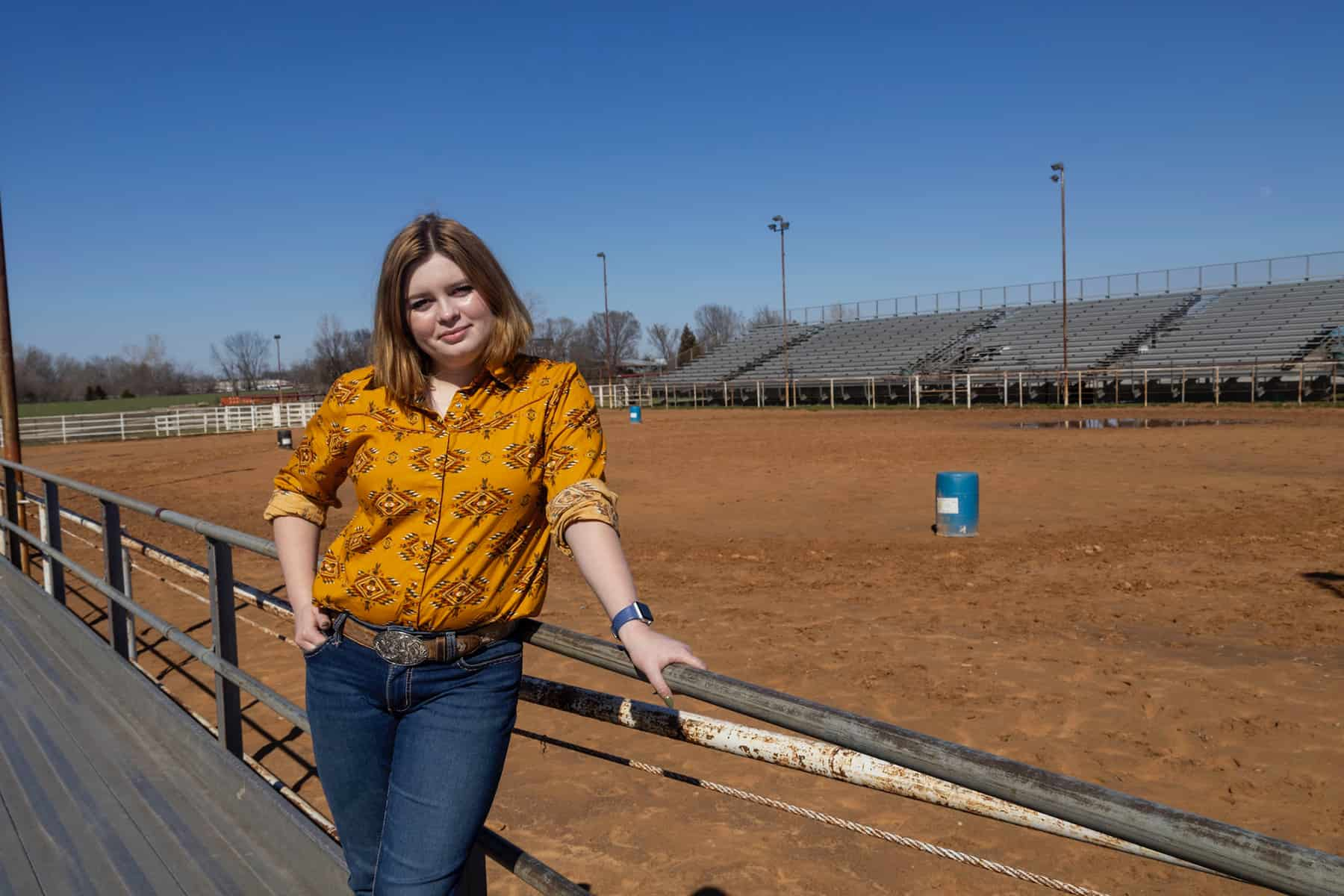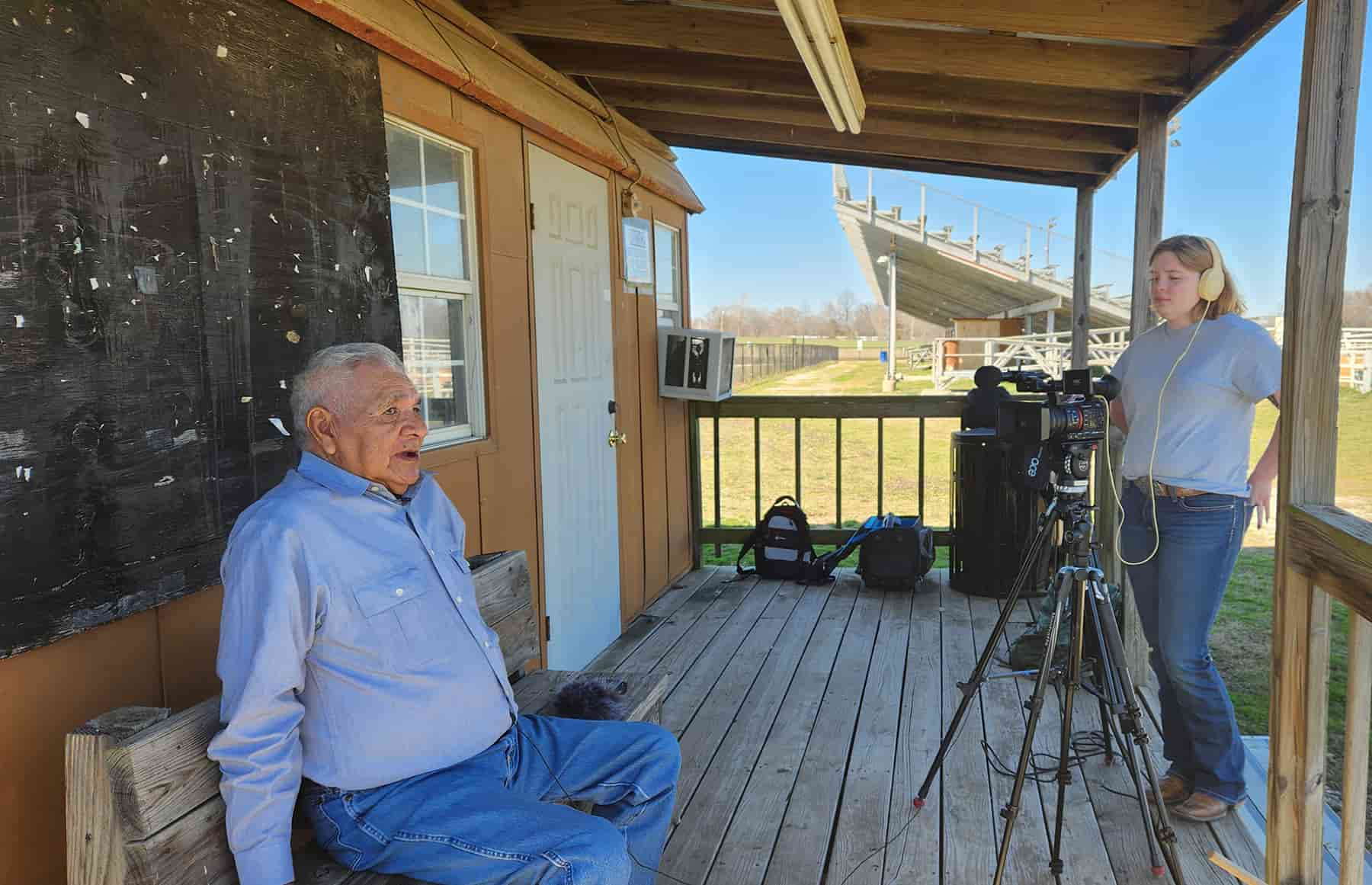
DENTON (UNT), Texas — This spring, the University of North Texas took journalism students
beyond the classroom, sending them to the heart of the Muscogee Nation in Okmulgee,
Oklahoma, for a unique reporting experience.
Students from UNT’s Mayborn School of Journalism spent a week on the ground, conducting immersive reporting and producing multimedia
stories that highlighted Indigenous voices and experiences. Led by journalism faculty members Tracy Everbach and Hoda Emam, students in the new
Indigenous Communities Reporting course learned how to cover historically misrepresented
communities with accuracy, sensitivity and respect.
Everbach created the course after watching the 2023 documentary Bad Press, which chronicles the Muscogee Nation's fight to restore press freedom. When Emam
joined the Mayborn faculty, the two collaborated to develop a course focused on ethical,
community-based reporting.
"We thought, what better way to teach journalism than by taking students to a real
community with real stories?" Everbach said. "And not just sending them out, but guiding
them through the process in person."
Students returned from the trip with video documentaries, audio pieces, photo essays
and long-form written stories — highlighting topics such as cultural preservation,
rodeo legacies and reintegration programs. Emam emphasized the importance of hands-on
experience.
"We wanted our students to experience real journalism — not just through a screen,
but through people's lives," Emam said. "They learned to cold call sources, handle
equipment failures and ask tough questions — all with professionalism and empathy."
The course began with eight weeks of preparation. Students studied the 2017 book Killers of the Flower Moon by David Grann, attended Zoom calls with tribal leaders and heard from guest speakers.
The class learned how to avoid stereotypes, build trust and report with cultural awareness.

Once on-site, students pursued unique story angles. UNT Junior Lauren Sicking explored
the legacy of rodeo through the Roberts family, uncovering generational stories of
grit, tradition and community impact.
"At first, I thought I was just doing a story about cowboys," Sicking said. "But as
I interviewed Ryan Roberts, I realized this was a story about his family and the legacy
they built in the rodeo world.”
Another student, Tabitha Hidalgo, focused on the Muscogee Nation's reintegration center,
which helps formerly incarcerated individuals return to society.
"The people of Okmulgee welcomed us with open arms," Hidalgo said. "They were eager
to share their stories. That kind of trust isn't easy to earn — and we never took
it for granted."
From start to finish, faculty members Everbach and Emam focused on fostering a sense
of teamwork and ensuring the students’ safety. One student, initially nervous about
conducting interviews, grew more confident as the trip progressed.
"One student was so nervous they wanted me to ask interview questions for them," Everbach
said. "But by the time we got there, they said, 'Actually, I've got this.'" Everbach
said the student “nailed it.”
For many students, the trip sparked a deeper understanding of Indigenous communities
and their ongoing contributions to American life.

"This was the best experience of my college career," said Sicking, who is studying
digital and print media. "I made connections I'll continue to carry with me, and I
learned what journalism is really about — listening, learning and honoring someone's
story."
The students’ work will be published on a website modeled after Voces de la Comunidad, the award-winning platform created by UNT’s 2023 border reporting class, focused
on Texas-Mexico border stories. This new platform will similarly highlight the voices
and experiences of Indigenous communities, continuing the Mayborn School’s commitment
to immersive, community-based reporting. Professor Everbach hopes it provides a more
nuanced understanding of Indigenous life.
"It's not about moccasins or myths — it's about real people, real communities and
real stories," she said.
Lecturer Emam said experiential learning is a powerful extension of what students
study in the classroom.
"There are important stories everywhere," Emam said. "And we're training the next
generation of journalists to tell them — thoughtfully, courageously and with heart."